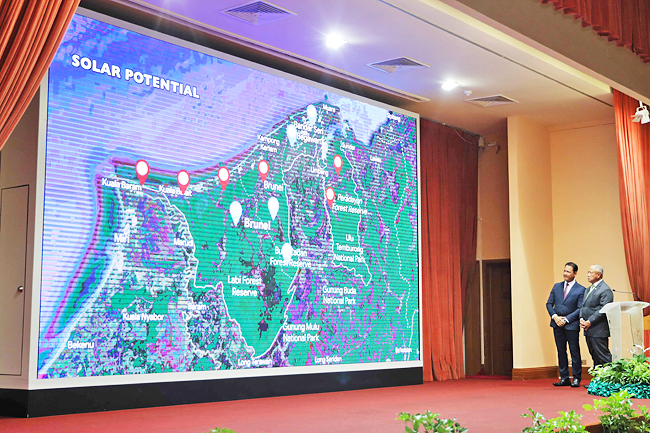Southeast Asia is among the fastest growing regions today, with economic development and energy security, including access to basic energy needs, remaining the region’s priority, said Acting Permanent Secretary of the Department of Energy at the Prime Minister’s Office Pengiran Haji Jamra Weira bin Pengiran Haji Petra.
In supporting the growth, oil and gas, in particular, will remain as an important part of the regional energy mix, and will continue to be relevant and important for decades to come, including for driving energy transition in advancing the region’s commitment for Net Zero, he said at the two-day energy Seminar, themed, ‘A Just Energy Transition Towards Green and Sustainable Development in Southeast Asia’ at the International Convention Centre (ICC), Berakas yesterday.
He added, “A ‘just’ energy transition for Southeast Asia is regionally defined to allow the provision of differentiated transition pathways tailored to the region’s respective capabilities and unique economic priorities, national circumstances and needs. In strengthening our capabilities, I am pleased that this year’s seminar will have a specific focus on four high-impact actionable areas for the region.”
The four areas are: the role of clean energy deployment to replace carbon-intensive energy; the importance of emerging technologies to mitigate emissions from the hard-to-abate sectors; strengthening energy connectivity to optimise renewable resources across the region; and the role of financing mechanism as a key enabler to advance energy transition efforts, he added.
The seminar was organised by The Department of Energy at the Prime Minister’s Office (PMO), in collaboration with the ASEAN Centre for Energy (ACE) and the Economic Research Institute for ASEAN and East Asia (ERIA) to encourage regional knowledge transfer and enhance understanding for an accelerated ‘just’ energy transition.
Minister at the Prime Minister’s Office and Minister of Defence II Pehin Datu Lailaraja Major General (Rtd) Dato Paduka Seri Haji Awang Halbi bin Haji Mohd Yussof launched the event.




The first day of the seminar drew 370 participants who had the opportunity to establish networking ties and exchange ideas with professionals, speakers and leaders of various fields.
The theme for this year’s seminar emphasises on the regional call for concerted efforts to accelerate regional energy transition, while ensuring fairness and inclusivity to economies, societies and communities. It also calls for an integrated commitment to bring reliable supply of affordable electricity to the region, while maintaining energy security and climate ambitions.
Through a moderated dialogue, the seminar strengthens cooperation and reaffirms commitment to achieve low carbon economy at a national and regional level.
The Sultanate is committed in transitioning towards a low carbon economy to safeguard the nation’s energy security and environment.
The Brunei Darussalam National Climate Change Policy (BNCCP) has outlined several decarbonisation strategies that target the transformation of the power sector into a greener and more sustainable energy future through an increase in the share of renewable energy technologies.
The strategy targets an increased generation capacity of 200 megawatts and minimum 30 per cent in the energy mix is the share of solar power by 2025 and 2035. The seminar features topics that look to conceptualise synergies and mutual grounds in contributing to a well-coordinated energy transition strategy with other Southeast Asian nations, and serve as a platform to reach out to regional stakeholders.
Among the sessions are: ‘Clean Energy Deployment for a Just Energy Transition’; ‘Emerging Technologies for Clean Energy Future’; ‘Energy Interconnection in Securing Energy Transition and Exploring Financing Mechanisms for Energy Transition’. – James Kon





